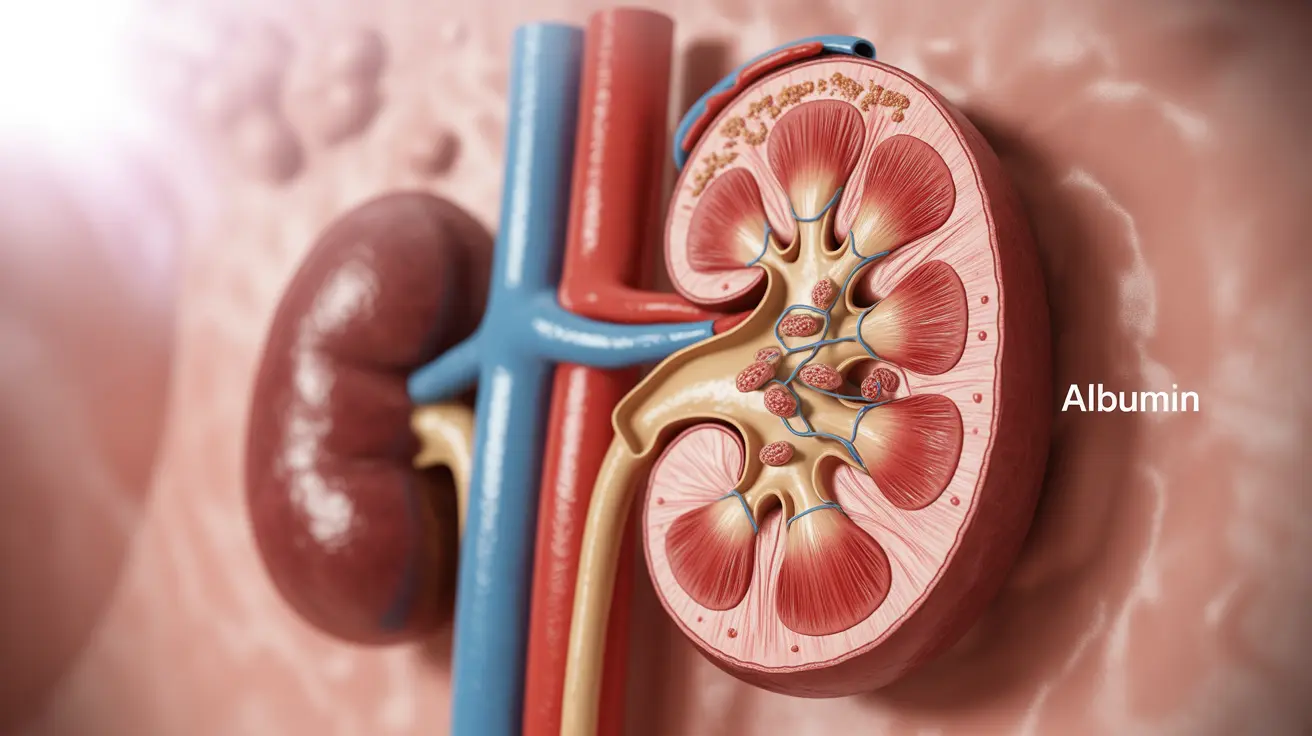Finding albumin in your urine can be concerning, as it often indicates underlying kidney issues that require attention. Understanding how to reduce albumin levels in urine is crucial for maintaining kidney health and preventing further complications. This comprehensive guide will explore various strategies, from lifestyle changes to medical interventions, that can help manage this condition effectively.
Understanding Albumin in Urine
Albumin is a protein that should normally remain in your bloodstream. When it appears in urine (albuminuria), it often signals that your kidneys aren't filtering properly. This condition can be an early warning sign of kidney damage and requires proper management to prevent progression of kidney disease.
Lifestyle Modifications to Reduce Albumin Levels
Dietary Changes
Making specific dietary adjustments can significantly impact albumin levels in your urine:
- Reduce sodium intake to less than 2,300mg daily
- Limit protein consumption to recommended amounts
- Increase intake of fresh fruits and vegetables
- Choose whole grains over refined carbohydrates
- Stay well-hydrated with water
Exercise and Weight Management
Regular physical activity and maintaining a healthy weight can help reduce albumin levels:
- Engage in moderate exercise for 30 minutes daily
- Focus on low-impact activities like walking or swimming
- Maintain a healthy BMI through proper diet and exercise
- Avoid excessive high-intensity workouts that might stress the kidneys
Medical Management Strategies
Blood Pressure Control
Maintaining healthy blood pressure is crucial for reducing albumin in urine. This often involves:
- Regular blood pressure monitoring
- Taking prescribed antihypertensive medications
- Reducing stress through relaxation techniques
- Limiting alcohol consumption
- Quitting smoking
Blood Sugar Management
For those with diabetes, proper blood sugar control is essential:
- Regular blood glucose monitoring
- Taking diabetes medications as prescribed
- Following a diabetic-friendly diet
- Working closely with healthcare providers to adjust treatment plans
Prevention and Monitoring
Regular monitoring is key to managing albumin levels effectively:
- Schedule regular kidney function tests
- Keep track of blood pressure readings
- Monitor blood sugar levels if diabetic
- Maintain a symptom diary
- Attend all follow-up appointments with healthcare providers
Frequently Asked Questions
How can I reduce the amount of albumin in my urine naturally and with medication?
You can reduce albumin in urine through a combination of natural methods and medications. Natural approaches include reducing salt intake, maintaining a healthy weight, and regular exercise. Medications like ACE inhibitors or ARBs may be prescribed by your doctor to help manage the condition.
What lifestyle and diet changes help lower albumin levels in urine?
Key lifestyle changes include limiting sodium intake, maintaining a healthy weight, regular exercise, and following a balanced diet rich in fruits and vegetables. Avoiding processed foods and excessive protein intake can also help reduce albumin levels.
Why do high blood pressure and diabetes cause albumin to appear in urine?
High blood pressure and diabetes can damage the tiny blood vessels in your kidneys, affecting their filtering ability. This damage allows albumin to leak from blood into urine. Controlling these conditions is essential for preventing further kidney damage.
What medications are commonly prescribed to reduce albuminuria and protect kidney health?
Common medications include ACE inhibitors and ARBs, which help lower blood pressure and protect kidney function. Other medications may be prescribed based on underlying conditions like diabetes or high blood pressure.
How often should I get tested for albumin in urine if I have kidney risk factors?
If you have risk factors such as diabetes or high blood pressure, you should get tested at least once a year. However, your healthcare provider may recommend more frequent testing based on your individual health status and risk factors.




